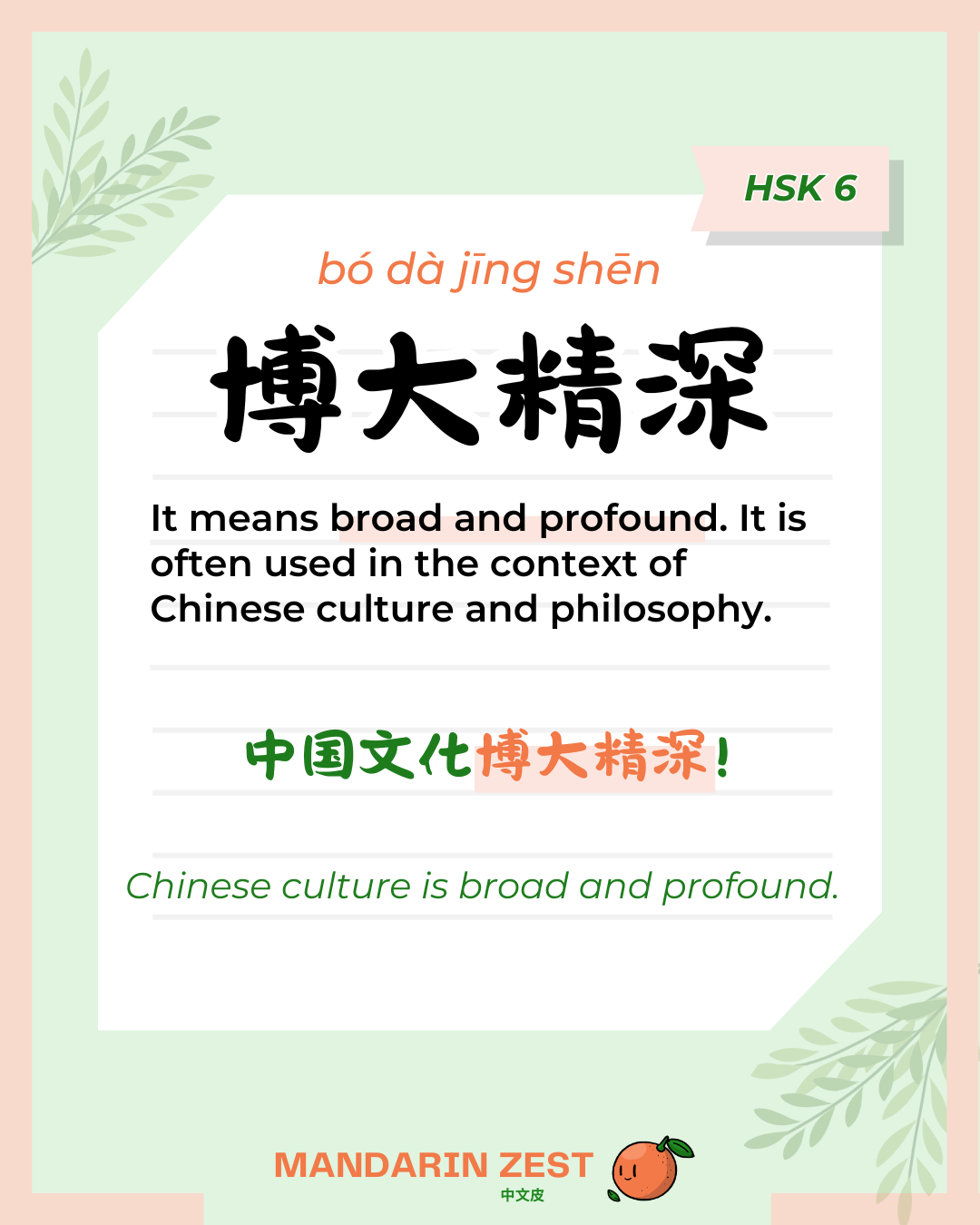A chengyu from HSK 6 vocabulary list, 博大精深 (bódàjīngshēn) is very often used in the context of Chinese culture and history. It means profound and extensive in knowledge. A good synonym would also be “erudite”. If you want to impress your Chinese friends or business partners, don’t forget to say: 中国文化博大精深!
This poetic expression is made of two parts:
博大 (bódà) — broad, extensive, profound, typically to describe culture, knowledge, or philosophy;
精神 (jīngshén) — spirit, essence, or mentality.
Sample Sentences
中华文化历史悠久,博大精深。Chinese culture has a long history and is broad and profound.
他写过一本博大精深的有关苏格兰历史的著作。He's the author of an erudite book on Scottish history.
佛教思想博大精深,不是你抄抄经书就能理解的。Buddhist philosophy is broad and profound; it's not something you can understand just by copying scriptures.
In a Text
中华文化有着五千多年的历史,内容博大精深,涵盖了哲学、艺术、医学、语言、宗教等各个方面。从儒家思想中的“仁义礼智信”,到道家的“无为而治”,再到佛教对人生苦乐的深刻探讨,中国传统思想为人类文明提供了宝贵的智慧。
涵盖 (hángài): to cover, to include, to encompass
Chinese culture has a history of over 5,000 years and is broad and profound in its content, encompassing various fields such as philosophy, art, medicine, language, and religion. From the Confucian ideals of “benevolence, righteousness, propriety, wisdom, and faith,” to the Daoist concept of “governing by non-interference,” and the Buddhist exploration of the joys and sufferings of life, traditional Chinese thought has offered valuable wisdom to human civilization.






